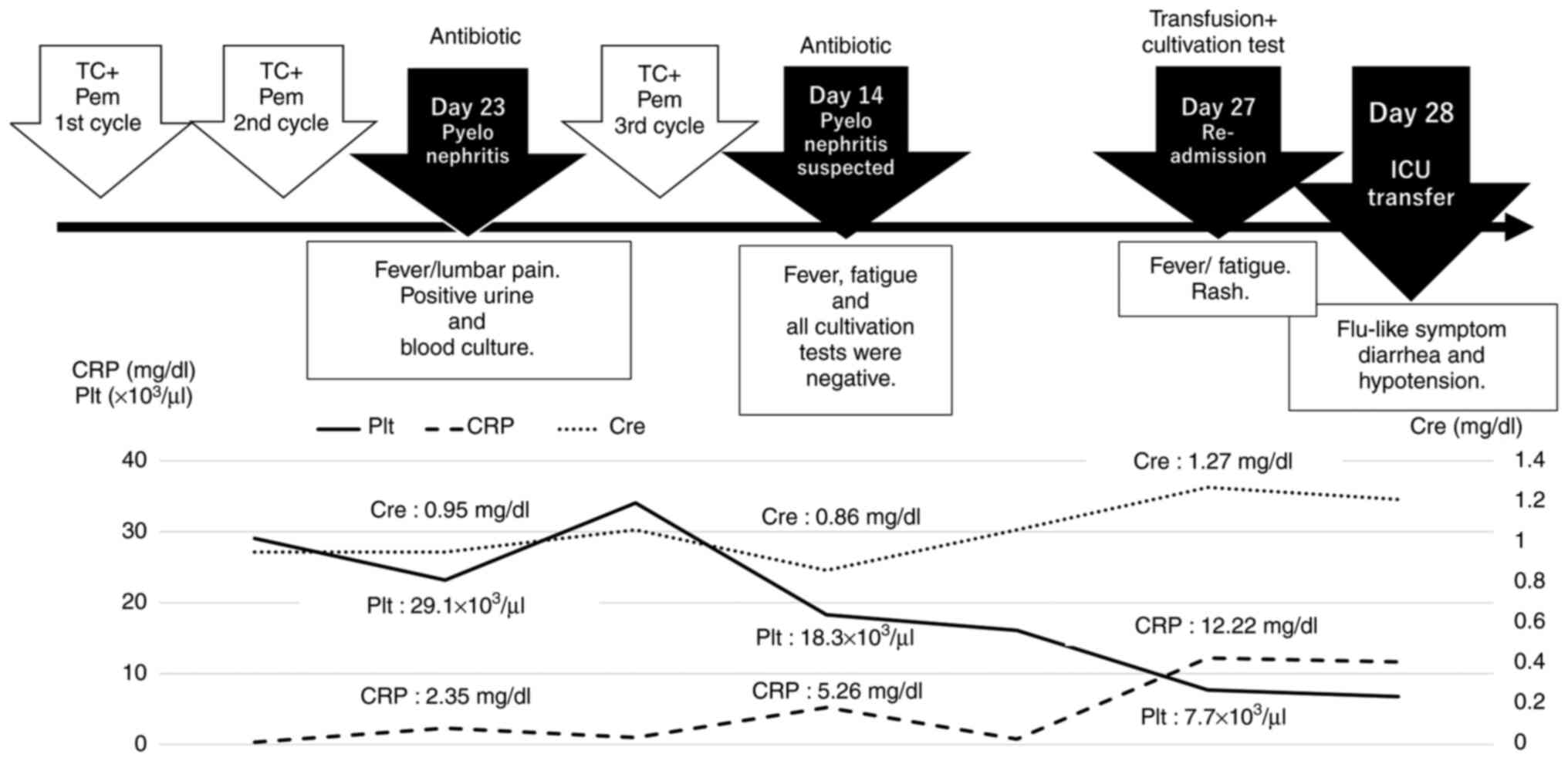Spandidos Publications style
Sekimata M, Kinjo Y, Tohyama A, Murakami M, Hashiwaki S, Saito Y, Higami S, Hagimoto M, Taketomi R, Hoshino K, Hoshino K, et al: Cytokine release syndrome induced by immune checkpoint inhibitor treatment for uterine cervical cancer recurrence: A case report. Oncol Lett 28: 331, 2024.
APA
Sekimata, M., Kinjo, Y., Tohyama, A., Murakami, M., Hashiwaki, S., Saito, Y. ... Yoshino, K. (2024). Cytokine release syndrome induced by immune checkpoint inhibitor treatment for uterine cervical cancer recurrence: A case report. Oncology Letters, 28, 331. https://doi.org/10.3892/ol.2024.14463
MLA
Sekimata, M., Kinjo, Y., Tohyama, A., Murakami, M., Hashiwaki, S., Saito, Y., Higami, S., Hagimoto, M., Taketomi, R., Hoshino, K., Harada, H., Ueda, T., Kurita, T., Matsuura, Y., Yoshino, K."Cytokine release syndrome induced by immune checkpoint inhibitor treatment for uterine cervical cancer recurrence: A case report". Oncology Letters 28.1 (2024): 331.
Chicago
Sekimata, M., Kinjo, Y., Tohyama, A., Murakami, M., Hashiwaki, S., Saito, Y., Higami, S., Hagimoto, M., Taketomi, R., Hoshino, K., Harada, H., Ueda, T., Kurita, T., Matsuura, Y., Yoshino, K."Cytokine release syndrome induced by immune checkpoint inhibitor treatment for uterine cervical cancer recurrence: A case report". Oncology Letters 28, no. 1 (2024): 331. https://doi.org/10.3892/ol.2024.14463
















